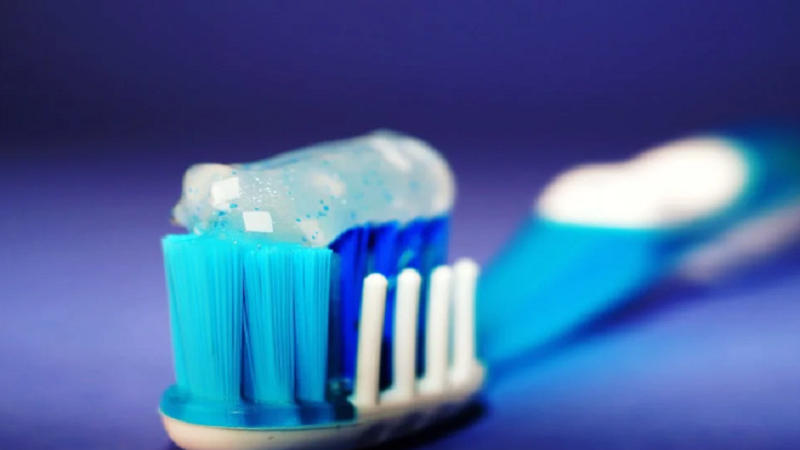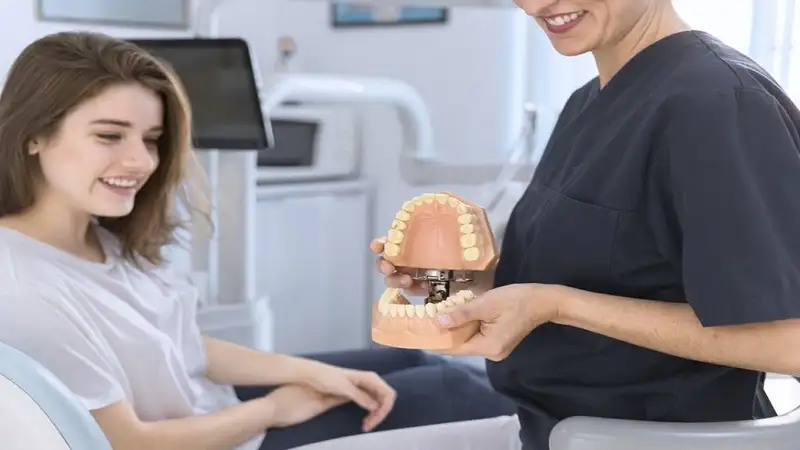Good oral hygiene is essential not only for your smile but also for your overall health. Gum disease has been linked to serious conditions such as heart disease and diabetes, making dental care more important than just ensuring a bright smile. Effective oral health maintenance can prevent a variety of dental problems, such as tooth decay and gum disease, and even improve your quality of life. This article outlines straightforward, practical steps that anyone can take to maintain optimal oral health.
Brush Properly Twice a Day
Brushing your teeth twice daily is essential for maintaining excellent oral health. The key lies not only in regular brushing but also in brushing thoroughly. Opt for a soft-bristled toothbrush to prevent harm to your gums and use fluoride toothpaste to strengthen tooth enamel and combat decay. Each brushing session should last at least two minutes, covering every surface of each tooth thoroughly. Focus particularly on the back teeth and other areas that are difficult to reach, as these are spots where plaque tends to build up.
Consult with Orthodontic Specialists
If your teeth are misaligned, consulting with orthodontic specialists can significantly improve your oral health. Misaligned teeth can trap food particles and make cleaning more difficult, increasing the risk of decay. For residents of Clovis Invisalign experts like DiCiccio Freeman Orthodontics can provide customized Invisalign treatments, which are clear aligners tailored to straighten your teeth without the visibility of traditional braces. Invisalign aligners are removable, making it easier to clean your teeth and maintain your oral health during treatment.
Floss Daily
While brushing is effective in cleaning the surfaces of your teeth, flossing reaches the areas your toothbrush can’t—between your teeth and under the gum line. Flossing every day is crucial for eliminating plaque and food remnants from the spaces between your teeth, helping to prevent tooth decay and gum disease. It’s important to floss gently, using a back-and-forth motion while curving the floss around each tooth to effectively clean the area without causing damage to your gums.
Use Mouthwash
Incorporating mouthwash into your daily routine can bolster your oral hygiene efforts. Mouthwash can reach places that brushing and flossing might miss, helping to eliminate debris that irritates the gum line and causes gingivitis. Look for a therapeutic mouthwash that contains active ingredients to help reduce plaque, prevent or reduce gingivitis, and freshen breath. However, remember that mouthwash is not a substitute for brushing and flossing but rather a complementary addition that can enhance overall cleanliness and oral health.
Limit Drinks and Sugary Snacks
Sugary foods and drinks are major culprits in tooth decay. When sugar is consumed, it interacts with the bacteria in the plaque to produce acid. This acid attacks the enamel of your teeth, leading to decay. To maintain oral health, it’s crucial to limit your intake of sugary items and consider healthier alternatives like fruits, vegetables, and water. Additionally, if you do consume sugary or acidic foods, try to brush your teeth shortly afterward to mitigate the effects of the sugar and acids.
Drink Plenty of Water
Water is incredibly beneficial for oral health. It helps to wash away food particles and residues that bacteria feed on. Water also dilutes the acids produced by bacteria in your mouth, reducing the risk of tooth decay. Additionally, staying hydrated is essential for saliva production, which naturally helps clean your teeth and gums. Try to drink water after every meal; this can help to clear food debris stuck in your teeth and can decrease the potential for cavities.
Eat a Balanced Diet
Maintaining a balanced diet is vital not only for your overall health but also for the health of your teeth and gums. Consuming foods high in calcium, phosphorus, and vitamin C is essential for maintaining strong teeth and robust gums. Dairy products such as milk and cheese, along with lean meats, nuts, and leafy green vegetables, help reinforce tooth enamel and enhance the bone density surrounding your teeth. Additionally, fruits rich in vitamin C, like oranges, strawberries, and kiwis, are crucial for healthy gums. Steering clear of highly processed foods that are laden with sugars and lack nutritional value also plays a significant role in promoting better oral health.
Avoid Smoking
Smoking and using tobacco products are severely detrimental to your oral health. Smoking can stain teeth, cause gum disease, and increase your risk of oral cancer. Tobacco use in any form—cigarettes, cigars, pipes, and chewing tobacco—impedes the blood flow to your gums, which can affect wound healing and make your gums recede. Quitting smoking can significantly reduce these risks and improve your overall health.
Regular Dental Check-ups
Visiting your dentist regularly for cleanings and check-ups is critical for maintaining oral health. Dentists can spot early signs of problems such as cavities, gum disease, and even oral cancer, often before you experience any symptoms. Typically, visiting a dentist every six months is recommended, but your dentist might suggest more frequent visits depending on your specific dental health needs.
Wear Protective Gear During Sports
If you or anyone in your family participates in sports, it is crucial to wear a mouthguard to safeguard your teeth and gums from potential harm. Activities such as hockey, football, and martial arts often carry a risk of impact on the face, which can result in oral injuries. A well-fitted mouthguard acts as a protective barrier, absorbing and dispersing the force of impacts, thereby reducing the likelihood of sustaining injuries to your teeth, lips, tongue, face, or jaw. Ensuring that the mouthguard fits correctly is key, as it not only maximizes protection but also makes it more comfortable to wear during sports activities.
In conclusion, maintaining excellent oral health involves a combination of daily practices and lifestyle choices. Simple actions like brushing, flossing, using mouthwash, and eating a balanced diet play a fundamental role in keeping your teeth and gums healthy. Avoiding harmful habits like smoking and ensuring regular visits to the dentist are also crucial. By incorporating these tips into your routine, you can enjoy the benefits of a healthy smile and overall well-being. Remember, taking care of your oral health is an investment in your overall health and should be treated with the same importance as any other aspect of your health regimen.




